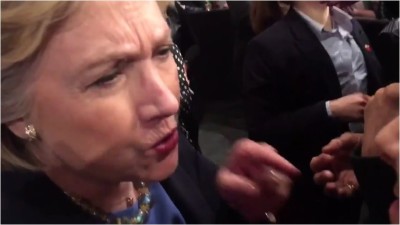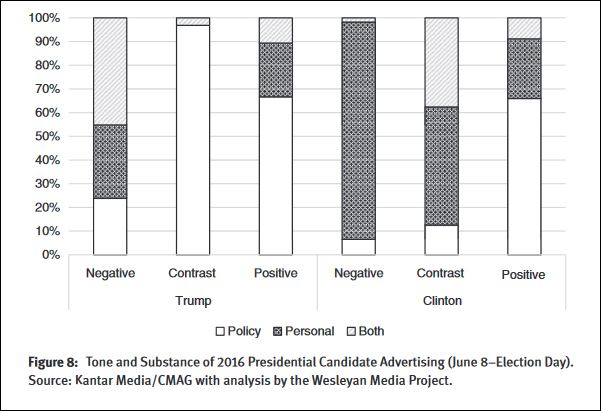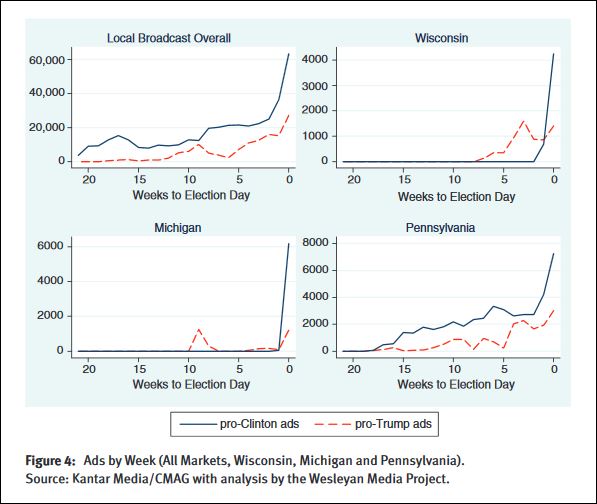A new study finds Hillary Clinton was the bigger name caller and fear monger in the 2016 race for president.
 Researchers from Wesleyan University have concluded Clinton — not Donald Trump — ran the most negative and least substantive campaign in last year’s election.
Researchers from Wesleyan University have concluded Clinton — not Donald Trump — ran the most negative and least substantive campaign in last year’s election.
After analyzing TV ads aired by the candidates and allied outside groups, Erika Franklin Fowler, Travis N. Rideout and Michael M. Franz of the Wesleyan Media Project found, “…the majority of the Clinton campaign’s negative advertising attacked Trump’s characteristics and personality. In other words, the attack ads were personal-focused as opposed to policy-focused.”
According to the researchers, less than 10 percent of Clinton’s ads focused on Trump’s proposals for America, and instead, more than 90 percent “focused on Trump as an individual.”
This chart from the study shows the overwhelming majority of Clinton’s “negative” ads were personal in nature.

Only ads promoting Clinton involved policy, “and those comprised only 30 percent of her overall mix on air.”
In comparison, over 90 percent of Trump’s “contrast” ads — those that feature both candidates — were focused on policy and not Clinton’s personality.
All told, over 60 percent of Clinton’s ads were “solely about candidate characteristics,” while only 25 percent focused on policy.
According the study:
For all of the talk of the unusual advertising campaign that Trump ran in 2016, his message strategy was more traditionally policy-focused. Ironically, it was the Clinton campaign that deviated sharply from the conventional playbook when it came to messaging despite following conventional norms in terms of volume, placement and targeting of ads. Indeed, only one in four Clinton campaign ads focused on policy, which is by far the lowest percentage we have seen since data from Kantar Media/CMAG have been available.
The study also found the Clinton campaign ignored the pivotal states Wisconsin and Michigan until it was too late.
Analysis of ad buys in the so-called “blue wall” states shows Clinton and her allies didn’t go on the air there until the very end.

“Although the Clinton campaign may have viewed the news media’s focus on Donald Trump as beneficial to them, they also claimed to have trouble getting coverage of policy statements. Yet the Clinton campaign itself did not focus on policy in its own messaging either…” the researchers conclude.
“Even though the ad advantage may have been in Clinton’s favor, it does no good if the message does not resonate with voters. Of course, the jury is still out on how effective Clinton’s message was, but evidence suggests that negativity in advertising can have a backlash effect on the sponsor (Pinkleton 1997) and that personally-focused, trait-based negative messages (especially those that are uncivil) tend to be seen as less fair, less informative and less important than more substantive, policy-based messaging (Fridkin and Geer 1994; Brooks and Geer 2007).”
Leave a Comment
COMMENTS POLICY: We have no tolerance for messages of violence, racism, vulgarity, obscenity or other such discourteous behavior. Thank you for contributing to a respectful and useful online dialogue.